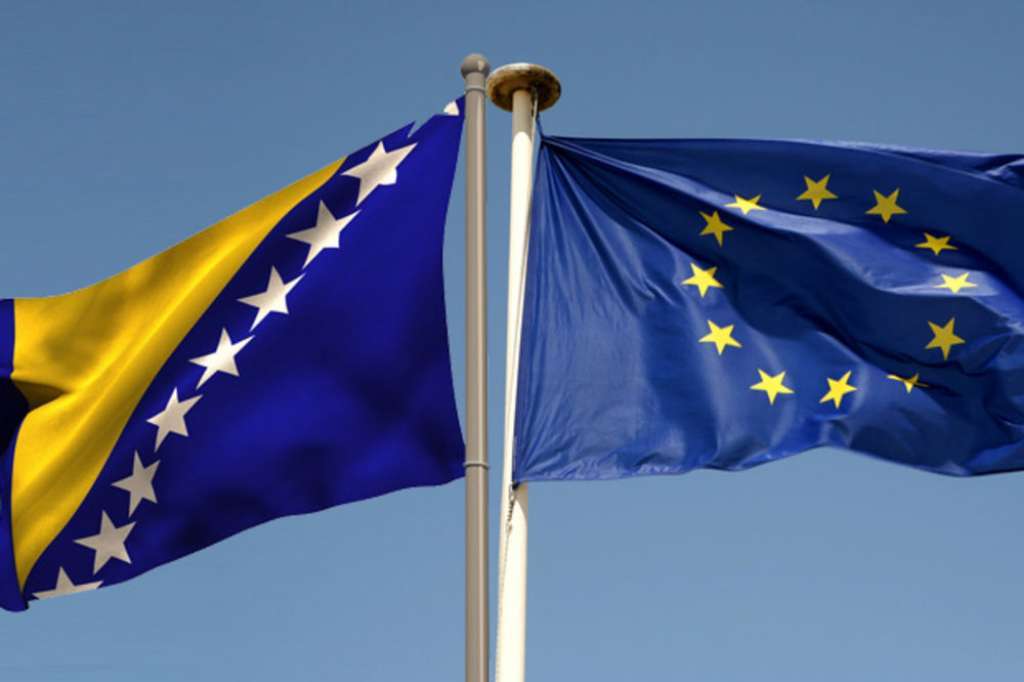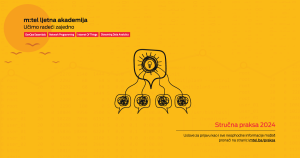BRUSSELS, December 5 (FENA) - Ahead of the EU-Western Balkans Summit on 6 December 2022 and the Justice and Home Affairs Council on 8 December, the Commission is presenting an EU Action Plan on the Western Balkans.
This Action Plan follows up on the Extraordinary Justice and Home Affairs Council (Home Affairs) of 25 November, where Ministers committed to implementing the EU Action Plan on the Central Mediterranean, proposed by the Commission on 21 November.
The Action Plan on the Western Balkans identifies 20 operational measures structured along 5 pillars: strengthening border management along the routes; swift asylum procedures and support reception capacity; fighting migrant smuggling; enhancing readmission cooperation and returns as well as achieving visa policy alignment.
"The measures are focused on support to or actions by Western Balkan partners, and action in the EU. It aims to strengthen the cooperation on migration and border management with partners in Western Balkans in light of their unique status with EU accession perspective and their continued efforts to align with EU rules," it is said in the announcement of the European Commission.
The Action Plan sets outs a series of measures to reinforce the EU's support to Member States facing increased migratory pressure along the Western Balkan routes. Irregular movements along the Western Balkans routes have significantly increased this year due to several factors, including economic pressures and insecurity resulting from ongoing conflicts.
The non-alignment of the visa-free regime with the EU's visa policy also contributes to an increasing number of people that arrive directly by air to Western Balkan countries and move onward to the EU. Close cooperation with our Western Balkan partners is essential to address these shared migratory challenges.
The European Commission stressed that reinforcing border management along the whole migration route is essential to reduce irregular flows, also in light of the evolving modus operandi of smugglers, the increased use of violence, and the risks of firearms trafficking and organized crime.
The EU has already concluded status agreements with Albania, Montenegro, Serbia and North Macedonia, allowing Frontex to deploy the European Border and Coast Guard standing corps to joint operations in the region.
The Frontex joint operations and deployments will be strengthened, and new status agreements will be negotiated swiftly. At the same time, we will review and potentially increase Frontex's support to Member States at the EU external borders.
The EU remains committed to strengthening the asylum capacity of Western Balkans partners and is supporting reception across the region through an ongoing Instrument for Pre-accession Assistance (IPA) program across the region. Continued support for the Western Balkans partners includes further strengthening their asylum and registration procedures as well as ensuring adequate reception conditions.
To continue strengthening actions along the whole route it is necessary to establish a Europol operational task force, enhance participation of all Western Balkan partners in the EMPACT cycle 2022-2025 and implement the recently adopted IPA program on anti-smuggling.
Reaching an agreement with co-legislators on the proposal to sanction transport operators involved in migrant smuggling is also essential, the EC stated.
They stress that the full implementation of readmission agreements with Western Balkan partners is the backbone of return and readmission cooperation and that they will support Western Balkans partners with EU action to step up returns in the region, strengthening operational capacities through Frontex, as well as convening Joint Readmission Committees.
A new program on returns from the region will be developed in 2023, stepping up cooperation and coordination at the operational level between the EU, the Western Balkans and countries of origin.
Visa policy alignment is crucial for the good functioning of the visa-free regime of the Western Balkans with the EU. All Western Balkans partners should align their visa policy with the EU as a matter of priority.
The Commission is adopting today its Fifth report on visa suspension on the monitoring of the EU visa-free regime with Albania, Bosnia and Herzegovina, Montenegro, North Macedonia and Serbia, as well as Georgia, Moldova and Ukraine.
The report focuses on actions taken to address the recommendations made by the Commission in the Fourth report, addressing the requirements for visa-free continue to be fulfilled but immediate steps are needed on alignment with EU visa policy.
The EU and the Member States will need to work jointly to achieve the goals set in this Action Plan and to ensure its effective implementation. Reporting and monitoring through the existing Commission and Council mechanisms are instrumental to that end. This Action Plan complements the ongoing work targeting other key migratory routes to Europe and may act as a model to develop similar plans addressing the specificities of other migratory routes.
The recent developments further underline the need to find sustainable and structural European solutions to our common challenges based on the comprehensive approach, it is stated.
(FENA) A. B.












